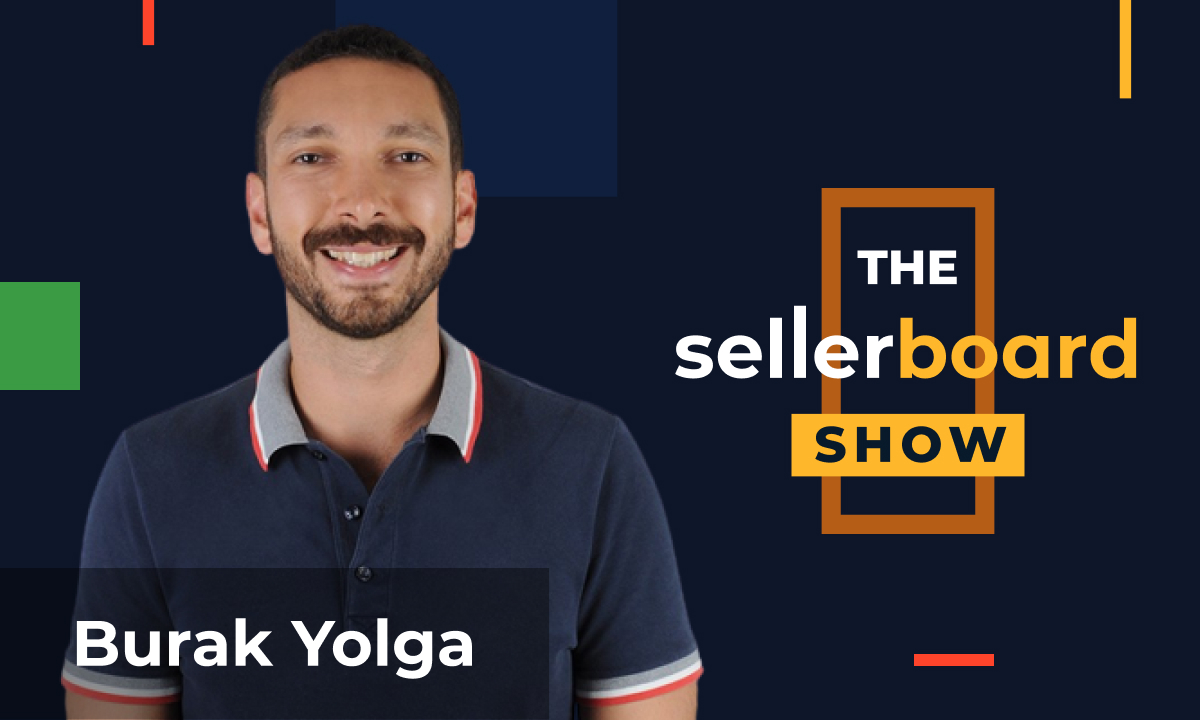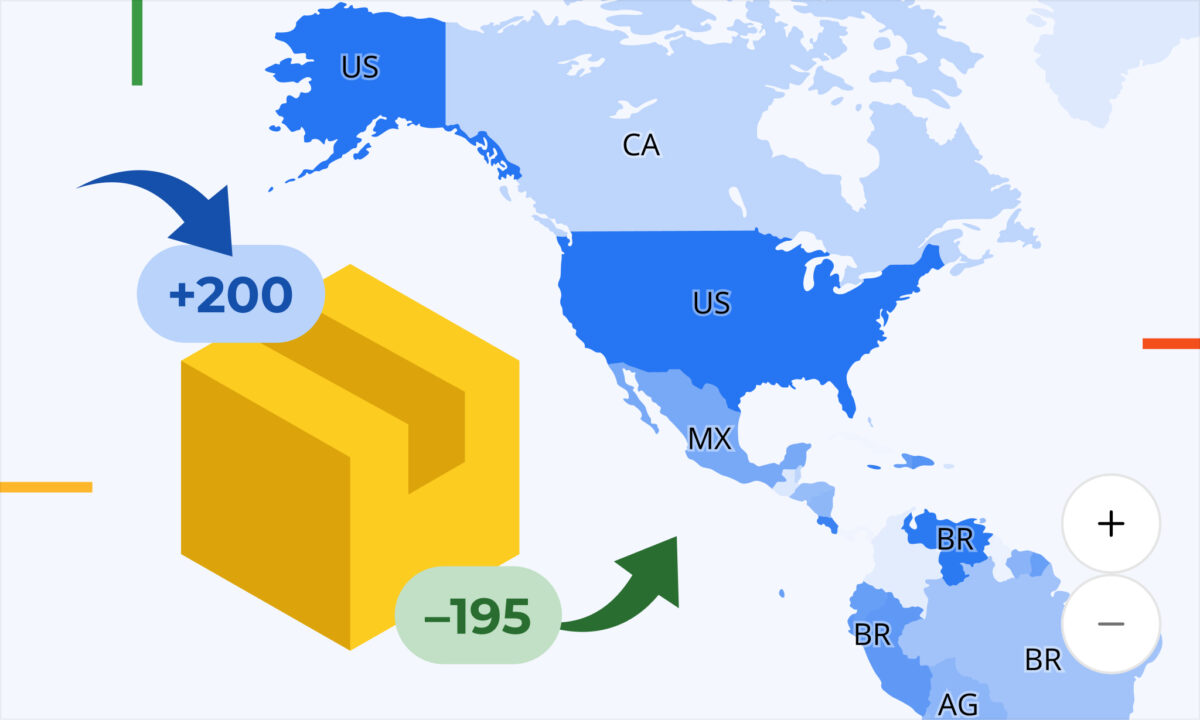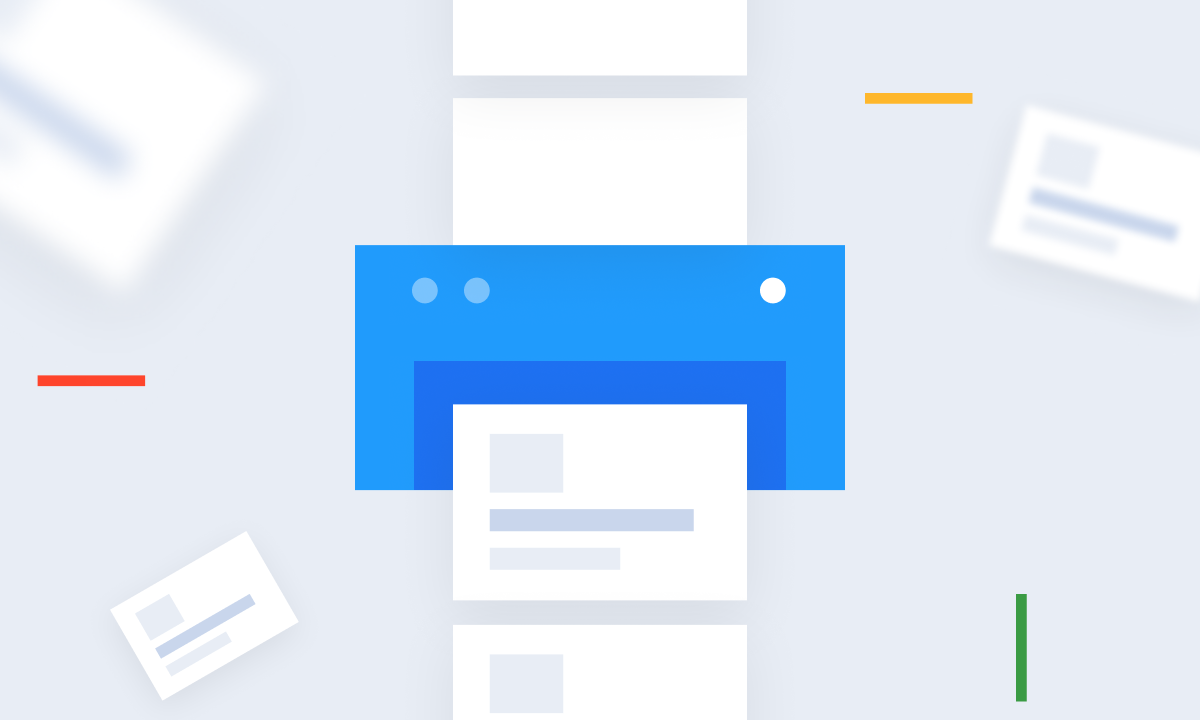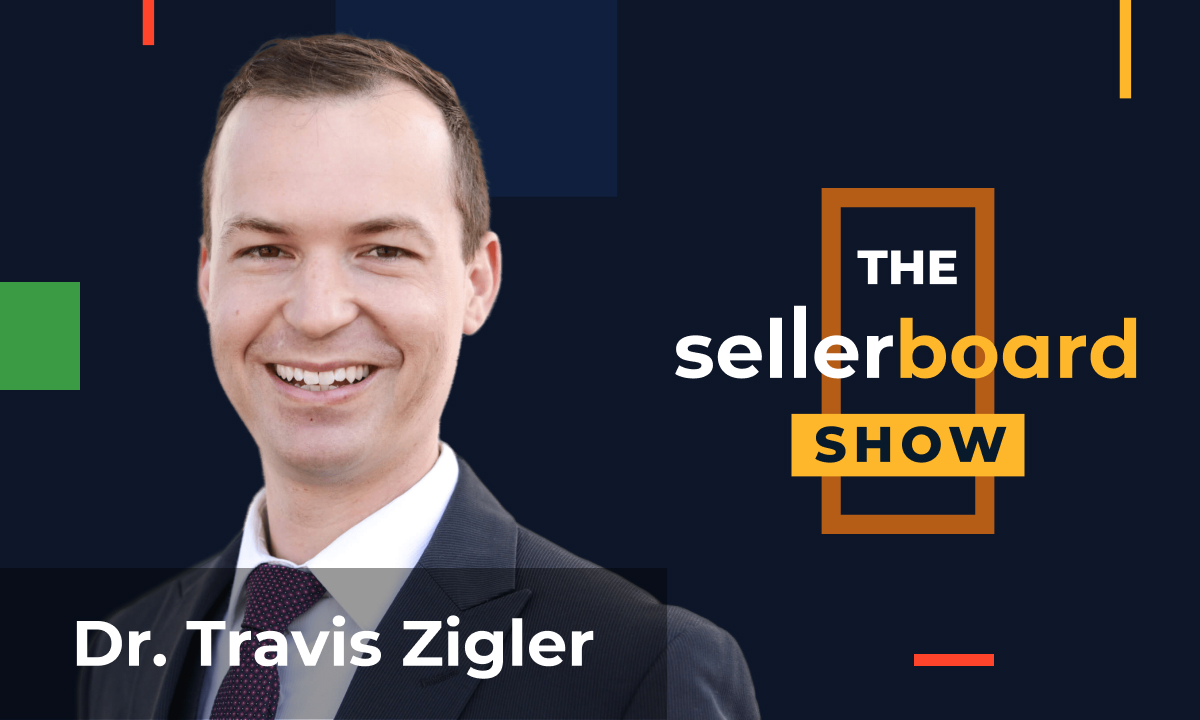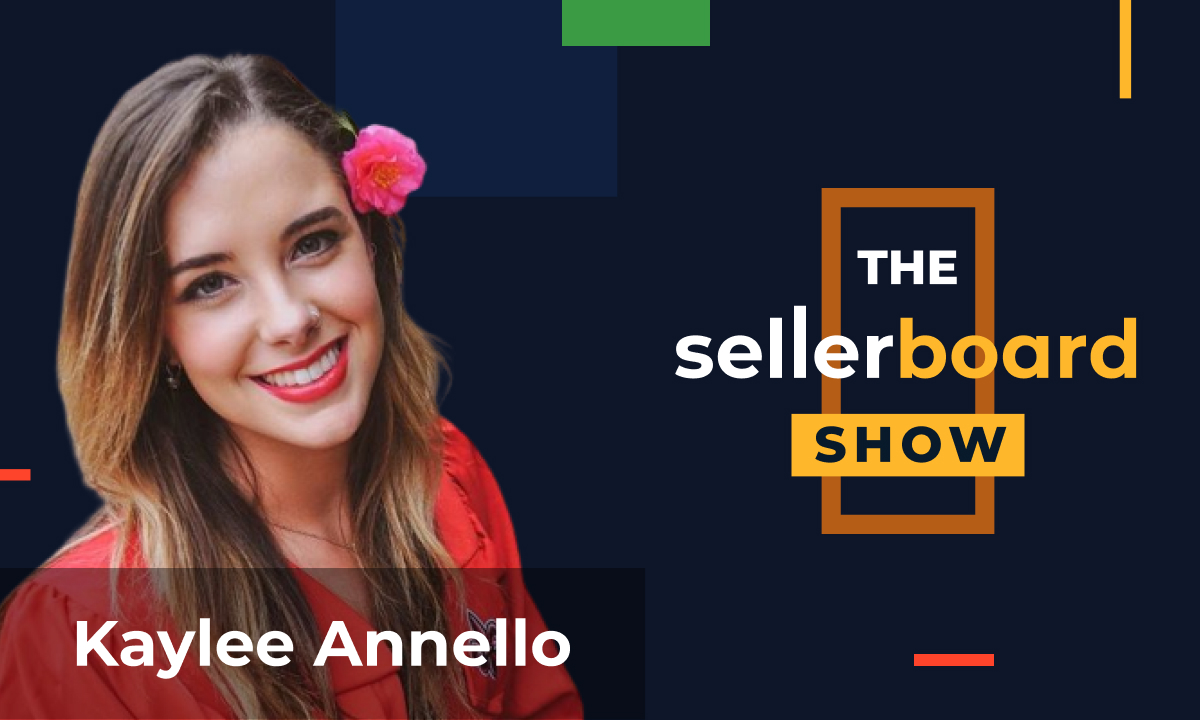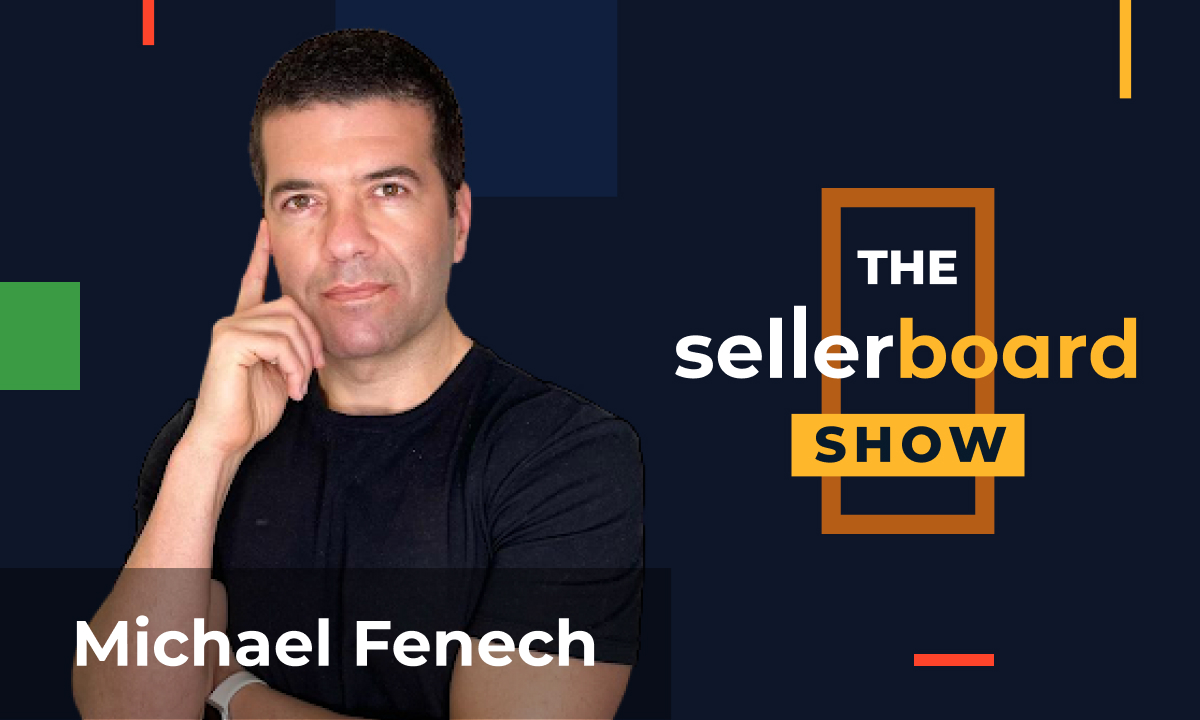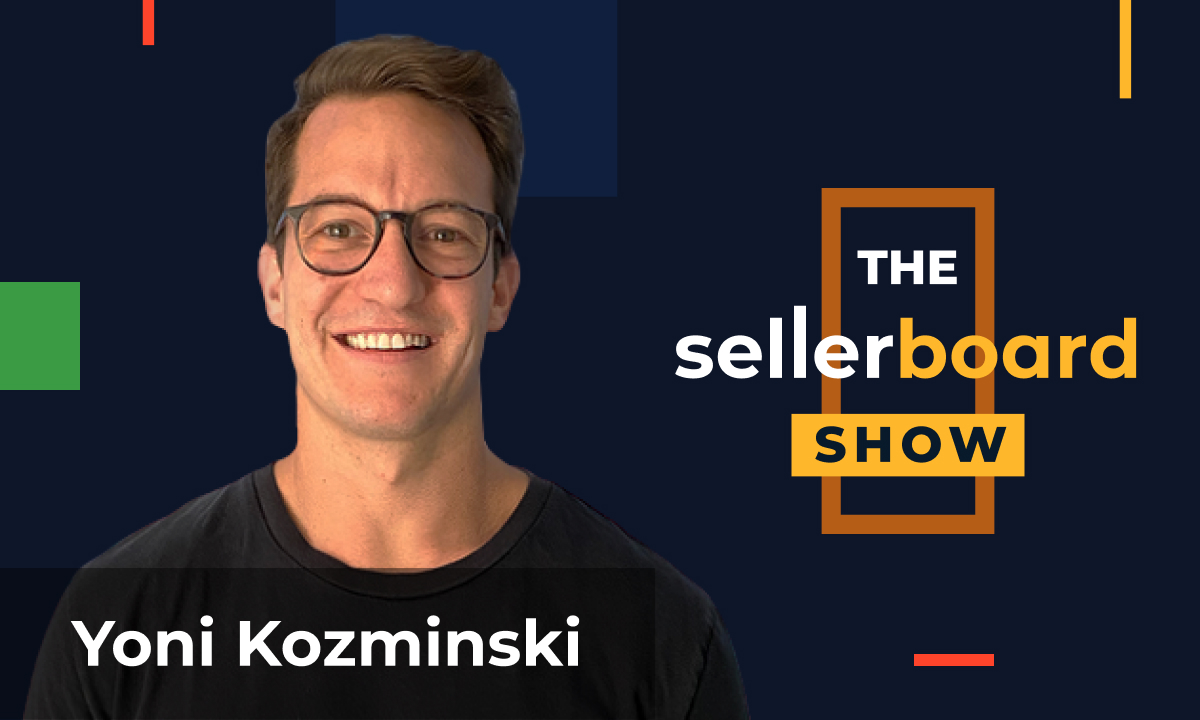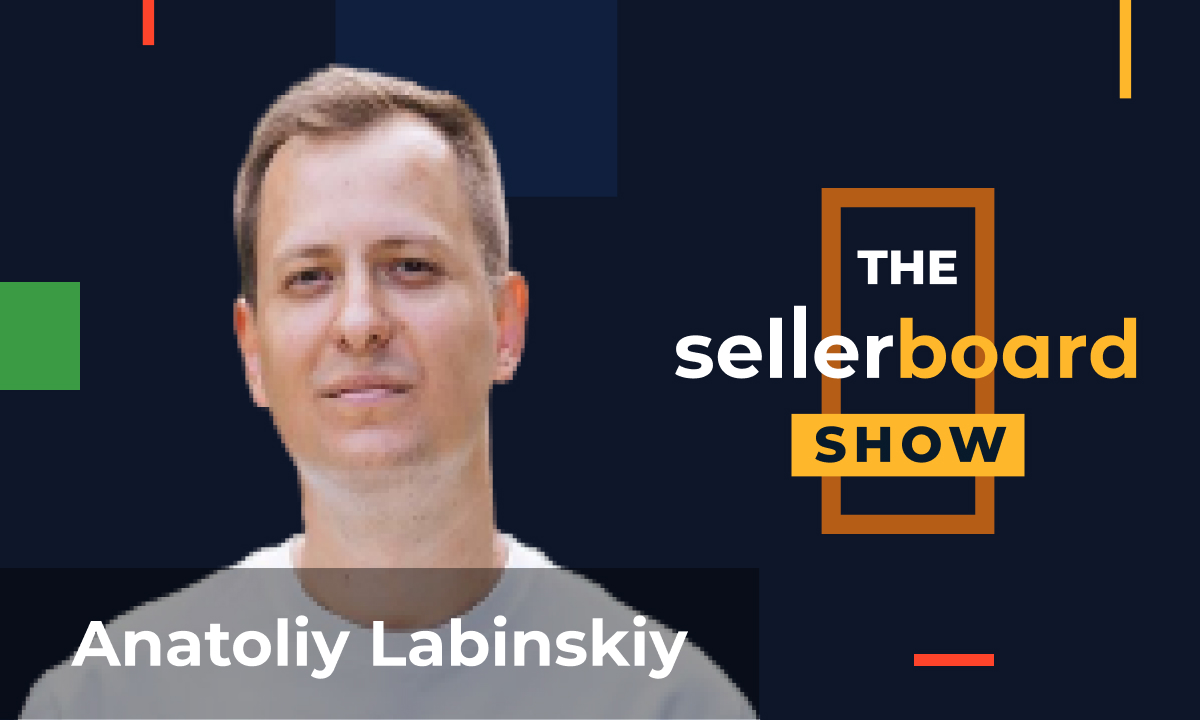Our guest on the sellerboard show was Burak Yolga – co-founder at Forceget Digital Freight Forwarder.
Contents:
- Air VS ocean freight;
- shipping cargo from China to Amazon FBA;
- cargo insurance;
- challenges Forceget has encountered and how they were addressed;
…and much more!
Speaker1: [00:00:07] Hello everyone. Welcome to another episode of the sellerboard Show podcast. My name is Alex and today’s episode is going to be especially interesting for the private label sellers since we are going to talk about Freight forwarding and today’s guest on the podcast to help us with this topic is Burak Yolga, who is the founder of the first digital freight forwarding agency, and he’s going to teach us about different aspects, about freight forwarding and about the things you need to look after when choosing a freight forwarder as an Amazon seller. And besides that, we are also going to talk with Burak about his personal journey as an Amazon seller, as a company founder, and as someone who moved from Turkey to China, who worked there and started selling on Amazon for quite a while and then moved to the US. So it’s really interesting story. I welcome you to get to know it. Besides that, the last thing I want to ask you is go to seller.com, check out the demo account, see how seller board can help you really understand your numbers, your profitability and how the tools can help you automate some of the processes inside your Amazon business. Without further ado, let’s jump into the episode. Let’s go. Hello everyone, and welcome to another episode of the Board Show podcast. Today my special guest is Burak Yolga. He is the co-founder of the Force Get Digital Freight Forwarder. And welcome Burak.
Speaker2: [00:01:48] Thank you so much for having me.
Speaker1: [00:01:51] Thank you for coming to the podcast. So my first question is actually is did you co-found Force get with your sister?
Speaker2: [00:02:02] Actually, it’s a funny story. I, I found the force guide myself while I was living in China last five years. I’m based out of Miami, Florida. I live in the United States. And before that I lived eight years in China, mainly in Shenzhen and mainly in Shanghai area. And I also had like an office in Hong Kong. And I started my business, my journey like a one man show, like I was a sourcing guy, middleman, you know, going around the factories, trying to source different product, trying to sell the products to the different companies in Europe, you know, originally from Istanbul, Turkey. And so I had good connections. But then force get started, grow bigger and better. And now we start working with e-commerce and Amazon sellers. And my sister, she is amazing with software and finance. So that’s where I kind of feel like I’m not good at it. I’m good at like, you know, operations, sales and marketing. So we kind of completed each other in a really good way. And then everything now in a organic way, in a, you know, in the right place.
Speaker1: [00:03:01] Amazing, man. That’s, that’s a really nice bond. I also have my sister that’s older than me, but I can’t be so proud, you know, of a collaboration or something. So we took different paths. Totally. But that’s amazing. Congrats.
Speaker2: [00:03:13] Thank you. We still fight every day, but it’s getting like it’s getting less and less. You know, another business part, but more like a brother and a sister. But it’s really good to be in a in a right place with the right family member. I know so many people. They have great partnership with their brother, sisters, uh, people who are lucky. You know, it’s a good support, actually. Like, business is important, but think family is really first, um, and it’s just really great to have a support. It doesn’t have to be only you don’t have to do a business together only, but I think it’s good to have like someone that you can get consultancy like, you know, you can ask, Hey, what do you think about this? What do you think about that? About that for sure. So it’s really I feel very lucky about this for sure.
Speaker1: [00:03:52] That’s amazing. All right. I’m only asking because I checked out your LinkedIn profile and you mentioned the fact that she’s COO of and co-founder of Foursquare. So I was amazed by that. Nice. All right. So I would like to get to know a little bit more about yourself. And I also found out from your LinkedIn profile that you have a very solid background in sales when you were still back in Turkey. Could you just tell us a little bit about that? I saw that you’ve worked with some major brands like BMW and Sony. How was that experience?
Speaker2: [00:04:28] Um, it was amazing. I did I did my bachelor’s degree in Istanbul in Turkey international business, and then I did one year MBA in Paris. That’s where I kind of start meeting more people from Asia, South America. And, you know, my main background was like, you know, close to Europe. And then I started having a lot of interest to Asia back then. I’m talking about like year 2010, 2011. If you remember back then, if you’re doing a business, China was every year growing double digit in the GDP. They were they were like incredible production facilities. They were all over the world. And, you know, the oil and gas prices are really high level. So China was manufacturing a lot of product and everyone was getting like really rich. So I decided to go to China for like six months only. And then I was going to do like an internship and do a little bit of backpack traveling and Southeast Asia come back to Turkey to start working for a corporate company. But thankfully it didn’t work out that way. I know that lots of people who listen to your podcast now, they are doing their own business or they want to start a new business.
Speaker2: [00:05:33] I really recommend people to do it because there’s a good saying that it’s better to try and regret it than not try and not not try it and regret it. Obviously, there are so many information in the market that you can collect them and understand what works for some people and what don’t work for other people. Back in our time, like when I started the business 2011, I kind of didn’t know, like I didn’t have anyone to ask things. So I kind of made a lot of mistakes, but I kind of try to learn from my mistakes. So I highly recommend people, if they haven’t started yet, they should start, but try to understand and go to the events, listen to great podcasts like yours to understand, like you know, what people are recommending. And it’s still e-commerce is offering a lot of opportunities today and it’s growing and growing, you know, so there are still a lot of opportunities, I think.
Speaker1: [00:06:23] Thanks, man. That’s really motivational. Also for me personally, as I said, I’m not an Amazon seller, but maybe one day, so. You’re talking straight to my heart right now. Okay.
Speaker2: [00:06:32] That’s amazing to hear, you know?
Speaker1: [00:06:33] Yeah. Thanks. So, yeah, I just want to add to that saying that I also heard a saying that says start when you’re not ready. Yeah. So I could totally agree with that.
Speaker2: [00:06:45] We’re never ready. We’re never ready. There’s always. There’s always a way to perfection. But I think there’s no company in the world perfect. There’s always, like, more to enter. We can see that all these multi-billion dollar companies are entering new business models. They start offering new things to their clients. You know, everybody’s trying to get more market share. There’s no there’s no ready, like time for perfection. But I think starting steps are important. But I would recommend people not to go too wide in the first year, maybe try to do like maybe one product, two products. Understand. And this is something we’re going to start talking about today is if they have an existing product, maybe they should start doing a better math about the profitability, about how what is the dimension of their products, what is Amazon FBA fee tiers? You know, Amazon fourth quarter fees are extremely high. I recommend everyone to, you know, this is a very unsexy stuff, you know, to talk about like profitability, inventory management, but that’s actually where you can save money without even making sales and use that money to generate more sales. You can use it in the digital advertisement you can use on Amazon or Walmart PCs. You can try to bring more traffic. You can go to, I don’t know, local radios. You can do a lot of different things. You can have a lot of ideas or create the content editor. That’s something is very important. I think branding this is everyone is talking in the market right now, branding.
Speaker1: [00:08:18] Yeah, well, that’s a good insight. So as you mentioned, it’s not a very sexy topic to talk about profitability and knowing, you know your numbers. But this is what we are about. We are you could probably we are data nerds. We’re doing the, you know, the math calculations. But I totally relate to what you just said. So, you know.
Speaker2: [00:08:38] I use I used to use actually seller boards. So I had a seller board account like four years ago. I had an Amazon business. And you know, there are so many times that we were trying to go try to pull up the data from the business reports, especially when we have an reimbursement from Amazon. We’re trying to understand, trying to relate them. And then, you know, a lot of great tools in the market that you can do like, you know, keyword analysis, this and that. They also offer profitability. But honestly, seller board was the only tool we used, only extra for the profitability to see the full visibility, to understand where it comes from that number so that we could manage our business better. Actually.
Speaker1: [00:09:24] That’s great. That’s great. Always great to hear. Thank you, man. Since you’ve mentioned it, could you tell us just a little bit about your experience as an Amazon seller? How was it so for how long did you sell? When at what point did you decide to exit? Just a little bit through through the main points?
Speaker2: [00:09:42] You know, I was I was actually probably one of the lucky ones because, you know, by the time I lived in China, I had I had the access to a lot of different products, a lot of different suppliers. But back then, I did not think that this business is as profitable as my other wholesale business because I had a wholesale business, so I didn’t really understand back then. I’m talking about 2016. I didn’t really understand the model. The reason was, you know, I was living in China. I had wholesale customers that people used to order, like a full container of, you know, maybe calculator, maybe cocktail shaker kit or maybe parking sensors. So I was very happy to buy bulk product and sell bulk product. I didn’t have to deal with like a single returns. I didn’t have to deal with like listings and stuff. So I kind of choose my wholesale business over the Amazon business, but I still like, I still have like a I still have like an account where we manage our we have like an account. We only have like 1 or 2 products now to understand what’s going on with the inventory management and etcetera. So Forchette now is we are around like 45 to 50 people in four different continents. We have a warehouse in Los Angeles, so we are really growing company. And my main focus is only Forescout right now to help e-commerce and Amazon sellers to understand, you know, how they can save money on international shipping, how they can have a better setup for the three pls. What happens if they are working with a freight forwarder Only in China that because of the time difference they have a problem. Maybe they don’t have a digital tracking, maybe they’re not licensed. So we decided to help e-commerce and Amazon sellers with this way that we can be more, uh, we can give them more benefits. Actually for this way.
Speaker1: [00:11:26] All right. All right. So that sounds like a very solid solution for the market. So let’s let’s start from the very beginning. Let’s talk a little bit about force get. So at what point did you understand that there’s a opportunity in the market and the demand for these kind of services and you decided to found force get So what was that story like?
Speaker2: [00:11:49] Actually, you know, force get started as a side business to support my wholesale business because I had clients in Italy, had clients in Turkey. They ordered like a full containers of products. And they start asking me, Hey, Barack, can you also help us with the shipping, please? I was like, Yeah, sure, why not? And start making a couple of hundred dollars in each shipment. I was like, Wow, that’s like a good hustle because I was just like, I was just by myself, you know, every dollar counted. And I had a really good friend. Uh, he’s from us, but he lived in China, like, ten years. His name is Mac. I might just send this letter to him. And he was working back then. A very big Japanese freight company.
Speaker1: [00:12:25] Called out to Mac.
Speaker2: [00:12:27] Yes. Uh, probably the cold. Ah. And then it’s just merged by, like, a really big Japanese company. Toll. We were having one day beer in Shanghai, and I started telling them a little bit about, like, our business, and he told me that Why don’t you do something like a software that people can track online? And I’m like, Dude, I don’t even know how to set up a wireless connection. Like, I’m very bad at those kind of things, you know, wireless connection. It is broken. I call someone to help me. And he started telling me about this. And then I was like, okay, interesting. And then I hired someone part time to build me like a software. And then it failed after three months because I didn’t even understand. Like I just told him, Hey, there’s a website, I want you to do the same thing for me. Turns out it didn’t work out that way. This is where Nihon helped me. But the idea was from Mac, um, kind of help in e-commerce and Amazon sellers. I started coming and going different meetups and then everybody’s like, Hey, I wish I knew Where’s my product, man? I mean, they’re like, Oh, I need to change my price. I need to deactivate or activate my coupon. And suddenly I’m like, What? What do you mean you don’t know? Where’s your product? They’re like, I asked my freight forwarder in China.
Speaker2: [00:13:31] They answer me two days later. By that time, you know, I cannot change my pricing. So it was a very different dynamic in the e-commerce and actual wholesale business because wholesalers didn’t really need to know when exactly their shipment is going to arrive, when exactly the container is going to arrive to the port. It wouldn’t make big difference for them between three days to five days. But for Amazon seller in a fourth quarter, if they if their keyword research number is ten times higher and it’s increasing, they’re selling 40 to 50 units per day and they have an opportunity to sell 7 to 8 days at 70 to 80 per day, and they want to maximize their profit. Then they actually need to know where’s their product, They need to increase or decrease their price. They need to see PPC budget, They maybe need to lower or increase or decrease their bidding on the keywords. So I was like, Wow, that’s an interesting way of thinking. Why don’t I start doing something like that? And then that’s where I kind of partnered and invite Nihon to my sister to come and manage the product. So she has done an incredible job. We work with a lot of big brands and aggregators in our platform. We give them full visibility with their supply chain.
Speaker1: [00:14:43] Nice. Nice. Now I kind of understand what’s the the main problem that you solve and where this comes from. So it’s totally understandable that the Amazon sellers need more, more accuracy and more details about the conditions in the status of their shipments. So yeah, that makes sense perfectly. Absolutely. Yes.
Speaker2: [00:15:01] Especially imagine you live in Europe, you sell in us. Your supplier is in China, right? You have three different time zones. Yeah. And most of the Amazon sellers, they work from home, they have kids. They want to have a build a family. They want to work remote.
